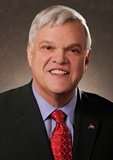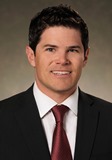In this Capitol Report:
- Split Control: Election-Year Politics Likely to Dominate, Stalemate 2016 Legislature
- 2016 Legislative Session: Opportunities and Mandates on Colorado’s Business Climate
- CACI’s Lobbying Team: Fighting to Protect Colorado’s Business Climate
- CACI’s 2016 Lobbying Team: Experience and Depth
- Critical 2016 Elections Set Stage for Lively Colorado Legislative Session
- Follow the Play-by-Play Legislative Action . . .
- Ballot Proposals Seek Fracking Ban, Severe Limits to Oil & Gas Operations in Colorado
- Stay in the Know-Attend CACI Council Meetings
This Capitol Report is brought to you by:
State Policy News
Split Control: Election-Year Politics Likely to Dominate, Stalemate 2016 Legislature
At 10 a.m. Wednesday, January 13th, the Second Regular Session of the 70th Colorado General Assembly will be gaveled into session by House Speaker Dickey Lee Hullinghorst (D-Boulder) and Senate President Bill Cadman (R-Colorado Springs).
The two legislative leaders will deliver their opening-day speeches as will the two minority-party leaders: House Minority Leader Brian DelGrosso (R-Loveland) and Senate Minority Leader Lucia Guzman (D-Denver).
On Thursday, January 14th, Governor John Hickenlooper, a Democrat, will deliver his sixth “State of the State Address” at 11 a.m. in the House Chamber to a joint session of the House and the Senate.
On Friday, January 15th, CACI’s Colorado Capitol Report will excerpt from the five speeches the passages concerning business issues that pertain to CACI’s members across the state.
The opening day speeches by the House and Senate majority and minority leaders can be viewed live via Internet streaming by going to the legislature’s Web site.
The Governor’s speech can be viewed by going to the Web sites of local television stations that carry the address:
For more information on news-media previews of the session, business issues, elections and politics, read:
“Yet more trouble for Colorado budget,” editorial, The Denver Post, January 8th.
“Colorado Legislature 2016: Bringing back the bills,” by Ed Sealover, The Denver Business Journal, January 8th.
“Calling the Colorado Legislature to disorder,” by Neal Westergaard, The Denver Business Journal, January 8th.
“6 more business issues to watch in 2016 legislative session,” by Ed Sealover, The Denver Business Journal, January 8th.
“Cadman: Somebody knew hospital provider fee is unconstitutional,” by Kara Mason, The Colorado Statesman, January 6th.
“Koch political group AFP wants lawmakers to sign political pledge,” by John Frank, The Denver Post, January 6th.
“GOP leaders say no interest in moving hospital provider fee from TABOR,” by Joey Bunch, The Denver Post, January 5th.
“Colorado legislators lay out very different priorities for 2016 session,” by Ed Sealover, The Denver Business Journal, January 4th.
“Group backed by prominent Colorado leaders weighs TABOR overhaul,” by John Frank, The Denver Post, January 3rd.
“Clash building over plan to de-Bruce education,” by Ramsey Scott, The Colorado Statesman, December 22nd.
2016 Legislative Session: Opportunities and Mandates on Colorado’s Business Climate
While it remains to be seen exactly which bills will be included the first wave of introduced legislation, CACI has spent the last several months working with its membership, lawmakers, and other vested partners on a wide range of issues that will impact Colorado’s business climate. In 2015, a newly elected Republican majority in the Senate split the Colorado legislature, providing an effective balance of power. Many politicized messaging bills failed to gain the bipartisan support necessary to advance, passing their chamber of origin on partisan votes, and then quickly dying in the State, Veteran, and Military Affairs Committee, or kill committee, in the second chamber. This sets the stage for numerous recycled efforts in what is likely to be a highly politicized 2016 legislative session.
Labor & Employment Council
Access to Personnel Records: Would require workers to have access to their personnel files kept by their employers and allow for rebuttal statements by workers. This bill was introduced and failed in 2015.
Extension of parental leave: Would allow parents to take leave from work to attend a child’s school activities. This policy “sunsetted” in 2015 and an effort to extend its authorization failed last session.
Pregnancy Accommodations: Would require employers to provide accommodations for pregnant women in their workplace.
Increase Minimum Wage: Would allow local governments to increase the minimum wage within their jurisdictions. Several efforts to enact minimum wage increases were introduced, and failed, in 2015.
Ban-the-Box, Employment Applications: Would remove the box on employment applications that require applicants to disclose prior criminal convictions.
Repeal of Employer Verification Law: Would eliminate the requirement for employers to complete and maintain affidavits affirming they have not hired any undocumented immigrants who do not have legal work status in the United States.
Energy & Environment Council
Oil & Gas
Environmental and local control activists have filed a range of aggressive ballot measures seeking constitutional amendments to impose outright bans or severe limits to oil and gas operations, to allow local governments to override state laws in regulating or banning business activities, and to create a new constitutional “right to a health environment.”
It is likely that legislation mirroring these efforts will be introduced in 2016 to initiate a statewide debate on these issues. Key focal points in include:
Fracking Ban: Banning the use of hydraulic fracturing, or fracking, in oil and gas operations in Colorado.
Increased Setbacks: Increasing the distance away from homes, schools, or other areas of concern that oil and gas operators must locate their wells and or development infrastructure.
Local Control: Repealing the primacy of state law in the regulation of oil and gas operations and other matters of state concern. This would allow local governments override state law in passing bans or more aggressive regulations for oil and gas operations in their jurisdiction.
Just Compensation for Government Takings: Similar to failed efforts in 2015, this would clarify in law that actions by state or local governments that have the effect of prohibiting mineral rights holders from exercising their private property rights are government takings that entitle property rights holders to just compensation.
Air Quality Regulations & Electricity Generating Utilities: State regulators continue efforts to develop new regulations and state plans for implementing recent aggressive reforms to federal regulations under the Clean Air Act. This gained the attention of lawmakers in 2015, and may do so again in 2016.
Transparency in Clean Power Plan State Plan Development Process: Requiring a more transparent and inclusive stakeholder process for developing Colorado’s state plan, and requiring that plan to address key issues such as energy reliability and cost impacts for ratepayers.
Increase to State Renewable Energy Standard: Some believe environmental activists may introduce a ballot measure to substantially increase Colorado’s renewable energy standards from the levels set in 2013 by Senate Bill 252.
Social Cost of Carbon: Would require legislative staff to include an estimate of the social and health costs associated with carbon emissions in the fiscal impact statement prepared for any qualifying legislative measure.
Performance Based Regulation of Investor Owned Utilities: Would require the consideration of certain environmental goals and factors when establishing rates for investor-owned electric utilities.
Electric Grid Protections for Electro-magnetic Pulse Disturbances: Would require utilities engaged in electricity generation and transmission to make costly technological upgrades to their grid infrastructure in order to prevent blackouts caused by EMPs.
Clean Water Program & Permit Fees: CACI engaged in 2015 efforts to restructure the Clean Water Program’s permit fee structure for permitted water dischargers. The Water Quality Control Division at CDPHE continues to state that their program fund is insolvent, and JBC staff has recommended running legislation to address this perceived shortfall. It remains to be seen if JBC will agree to run a bill.
State Water Plan: In November 2015, the Colorado Water Conservation Board finalized the State Water plan after extensive efforts to engage water rights holders, agricultural and industry stakeholders, and various state agencies and commissions. While the State Plan is non-binding, it lays out a range of priorities for water conservation, storage, watershed health, and industrial, residential, and agricultural water use strategies that may be addressed by legislation in 2016 and beyond.
Legacy Mines: The 2015 Gold King Mine spill into the Las Animas River in Southwest Colorado highlighted the ongoing environmental challenges that abandoned legacy mines pose across Colorado. While it remains to be seen what form legislation will take, it is likely that lawmakers will look for ways to address legacy mines and associated challenges of environmental remediation.
Health Care Council
ColoradoCare – Single Payer Health Care System Ballot Initiative: Yet-another-ballot-initiative effort will likely generate debate at the legislature in 2016. The ColoradoCare campaign is seeking a constitutional amendment to implement a single-payer health care system. Senator Irene Aguilar, a Denver Health physician and one of the leading advocates for a single payer health care system, has sponsored several legislative attempts to implement a single-payer health system in Colorado during her time in the legislature, and may do so again to jumpstart the statewide conversation on this issue.
Physical and Occupational Therapist Copayment Limits: Would limit via statute cost sharing measures such as patient copays for specific services such as physical and occupational therapy. A similar effort was introduced in 2015, but was amended to study the issue at the Colorado Commission on Affordable Health Care.
Vision Plan Insurance Contracting: Would amend, via statute, the terms and conditions of contracts between insurance plans that offer vision care coverage and optometrists. This bill failed to pass in 2015.
Pharmacist Scope of Practice: Would amend pharmacists’ existing scope of practice and authority to provide and or administer certain services and to be compensated at competitive rates for providing those services.
Prescription Drug Transparency: Would require pharmaceutical drug manufacturers to disclose information regarding the costs associated with the research, development, manufacture, marketing and sale of prescription drugs that exceed a defined cost threshold.
Tax Council
Review of Tax Credits and Exemptions: Would establish a process for researching and reviewing existing business incentive tax credit and exemption policies.
Local Governments Authorized to Extend Data Center Tax Exemptions: Would create the statutory authority to allow local governments to offer local sales and property tax exemptions to companies operating data centers.
Off-Shore Tax Havens: This bill, which died in 2015, would penalize any company with affiliate or subsidiary companies that operate in any one of over 40 locations to be defined statute as tax havens for sheltering corporate profits from taxation.
Reduce Audit Burdens for Small Business: Would implement measures to reduce the auditing requirements for small businesses, and particularly those with bonded financing.
Other Key Business Issues
Hospital Provider Fee and the State Budget
The state budget is likely to be a consistent topic of debate throughout the 2016 legislative session. State economists forecasted in December, that the State’s General Fund reserve is projected to be $165.5 million below the required amount of 6.5 percent of appropriations in FY 2016-17. Meanwhile, the state is on the cusp of hitting constitutionally defined revenue limits and resulting TABOR taxpayer refunds in FY 17-18, just one year after large General Fund transfers to transportation and capital construction projects were set to initiate.
As lawmakers work to balance competing priorities and spending mandates, a controversial fix has been debated regarding reclassifying revenue associated with the hospital provider fee as enterprise revenue that would not count against TABOR revenue limits. Proponents of this strategy, including Governor Hickenlooper and leading Democratic lawmakers, claim that reclassifying the hospital provider fee revenue would have the effect of decreasing state revenue levels well below TABOR revenue limits, thus delaying the need for TABOR refunds and allowing for General Fund spending on other state priorities. Opponents of this strategy argue that hospital provider fees are actually taxes that should remain subject to TABOR. Opponents are also concerned that the strategy would simply allow for more unchecked spending, with no guarantee that top priorities like transportation, education, and capital construction would be addressed.
Construction Defects
During the 2015 Legislative Session, attempts were made to revise the current construction defects statute to address Colorado’s current slow-down of affordable housing. The legislation was defeated in the House State, Veterans and Military Affairs Committee, also known as the “kill” committee. During the upcoming 2016 Session, several bills will be introduced that will include not be limited to addressing affordable housing and tax credits for new homeowners.
CACI’s Lobbying Team: Fighting to Protect Colorado’s Business Climate
CACI’s mission is to champion a healthy business climate, and one of its four key objectives is to maintain and improve the cost of doing business.
Any state government action—whether by legislation or regulation—that increases the cost of doing business for employers will hamper their efforts to create and retain jobs.
For CACI members and the statewide business community that it represents, the 2016 session and the November legislative elections will be critical to CACI’s mission.
Given that Republicans control the Senate by one vote and the Democrats control the House by three votes, the session will likely be very political, partisan and contentious as each party jockeys for advantage for the November elections.
As it was during the 2015 session, controversial bills from the House will likely die in the Senate, and contentious bills from the Senate will likely die in the House.
As it has been in recent election years, CACI’s goal in 2016 is to work with its pro-business allies to retain at least a balance between the two political parties in the control of the House and the Senate in 2017 and beyond. This balance existed during the 2011-2012 sessions and existed again in the 2015 session.
When the Democrats controlled both chambers during 2012 and 2013, CACI’s legislative agenda suffered. Moreover, the 2013 session was one of the most contentious in recent legislative history.
The political balance between the two chambers should continue in 2016, assuming that there are no political earthquakes to change the composition and numbers of each caucus in each chamber during the session and, thus, political control of a chamber.
As it has during recent past legislative sessions, CACI will continue to urge Governor John Hickenlooper and the legislators to focus on measures in this election year that will improve the business climate for employers, whose continued economic rebound from the 2008-2009 recession will result in increased employment and greater tax revenues for state government.
Since last fall, CACI, through its various policy councils, has been preparing for the session by studying such important business issues as taxation, health insurance, employment law and energy and the environment. For more detail, see the second article below.
In general, CACI will advocate legislation and regulation that will improve the state’s business climate and oppose bills that are “bad-for-business.”
CACI will field the largest, most experienced lobbying team of any business organization at the Colorado State Capitol:
- CACI President Chuck Berry, former Colorado House Speaker, will lead CACI’s lobbying effort for his sixteenth session.
- At the State Capitol, Loren Furman, CACI Senior Vice President, State and Federal Relations, will quarterback CACI’s lobbying effort; this will be her ninth session.
- The other members of the CACI team are Dan O’Connell, CACI Governmental Relations Representative; Leah Curtsinger, CACI Director of Federal Policy; and Larry Hudson, CACI Governmental Relations Consultant.
For detailed information about CACI’s veteran lobbying team, see the next article.
To help elect pro-business candidates to the legislature this year to maintain this political balance, CACI urges its members to support its two political committees:
- The Colorado Business Political Action Committee, and
- The CACI Prosperity Fund, which is a “small-donor” committee.
CACI members who wish to contribute to these two committees should contact Tricia Smith, CACI Senior Vice president, Events and Political Fundraising.
CACI’s 2016 Lobbying Team: Experience and Depth
Chuck Berry CACI’s lobbying effort is led by Chuck Berry, CACI President, who has headed CACI since mid-2000.
Prior to that time, Berry served as a member of the Colorado legislature for 14 years (1985-1998), and for eight of those years (1991-1998) Berry served as the Speaker of the House, being elected four times by his legislative colleagues to the most powerful position in the Colorado General Assembly. Berry was first elected to the legislature in 1984 to represent House District 21 in Colorado Springs and El Paso County.
Berry practiced in 1995-2000 as Special Counsel with the law firm, Holme Roberts and Owen in both the Colorado Springs and Denver offices. In January 1981, Berry was appointed El Paso County Attorney by the Board of County Commissioners, and he served in that position until his election to the General Assembly in 1984.
Berry earned a B.A. (Magna Cum Laude) from the University of Colorado in 1972 and a J.D. from the CU School of Law in 1975. After being admitted to the practice of law in Colorado in 1975, Berry was appointed a deputy district attorney for the Fourth Judicial District (El Paso and Teller Counties) and began his career as a criminal prosecutor in that office.
Loren Furman At the State Capitol, CACI’s lobbying team is directed by Loren, CACI Senior Vice President, State and Federal Governmental Relations.
Loren joined CACI in January 2008 and serves as its chief lobbyist at the State Capitol. This role involves managing CACI’s engagement on State and Federal policy issues, including: energy and environment, taxes, health care, labor and employment, tort/civil justice and manufacturing. Loren oversees the operations of the CACI lobbying team and staffs three issue councils: Labor and Employment, Governmental Affairs and Tax. Loren also serves as a spokesperson for CACI for news media inquiries.
Loren previously served as the Legislative Director for the Colorado Department of Personnel and Administration and worked with the Governor’s Office and Legislature on state workforce issues. Prior to that role, Loren worked as a lobbyist in the State of Florida for the lobbying firm of Floridian Partners and represented clients such as municipalities, businesses and trade associations with legislative, budget and regulatory interests ranging from insurance, public safety, telecommunications, IT, business regulation and tort reform.
Loren serves as a board member of Coloradans for Responsible Energy, Vital for Colorado, and the Colorado Civil Justice League, and served as past Board President for the Colorado Civil Justice League. She also serves as board member of the Colorado Association of Professional Lobbyists and previously served as private-sector Co-Chair of the American Legislative Exchange Council.
Loren was named as one of Colorado’s Most Influential Women: Up and Coming (The Denver Post, 2012), and was named as a Top Business Newsmaker in the Denver Business Journal Power Book Awards for 2013, 2014 and 2015. Loren holds a Bachelor of Science Degree in Political Science and a Master’s Degree in Political Science from Florida State University.
Leah Curtsinger As the Director of Federal Relations for CACI, Leah staffs the Federal Relations Council, in addition to supporting the lobbying team where Federal and State issues intersect. Leah joined CACI in April 2014 after working as a contract lobbyist at the Colorado legislature on economic development and business environment issues as well as representing clients in the telecommunications and financial services industries. Leah also advised clients on education, energy, environment and Joint Budget Committee issues.
Prior to moving to Colorado, Leah served as Legislative Assistant to U.S. Senator Mike Enzi (R-Wyo.) in Washington, D.C. Leah spent eight years on Capitol Hill where she specialized in telecommunications, technology, business lending, financial services and housing. Leah earned her Bachelor of Arts Degree in Political Science from the University of Wyoming, while competing as a student-athlete.
Dan O’Connell As the State Governmental Affairs Representative, Dan staffs CACI’s HealthCare Council and Energy and Environment Council. This will be Dan’s second legislative session for CACI and he brings a range of Federal and state governmental relations experience to his position. Prior to joining CACI, Dan was the Government Affairs Director at the Colorado Children’s Campaign where he managed legislative agendas across the education, healthcare, and early childhood policy areas. Prior to his work with the Children’s Campaign, Dan was an associate lobbyist for The CJR Group, in Washington, D.C. and lobbied on issues that included telecommunications, health care, economic development, manufacturing, retail, environment and natural resources.
Dan is licensed attorney and a 2010 graduate of the University of Denver’s Sturm College of Law. Prior to attending law school, Dan taught sixth grade in Phoenix, Ariz., in association with “Teach For America,” during which time he also earned his Masters of Education degree from Arizona State University. Dan is a 2004 graduate of Boston College.
Larry Hudson As Principal of his lobbying firm, Hudson Governmental Affairs, LLC, Larry lobbies for CACI on such issues as immigration, government contracts and procurement, labor and employment and information technology. This will be Larry’s tenth session to lobby for CACI.
Larry founded his firm in February 2010. Prior to that, Larry managed the Governmental Affairs practice of the Denver Office of Greenberg Traurig LLP. He also served as a senior policy advisor to Colorado Governor Bill Owens, where he provided advice on criminal justice and transportation issues, and firearm safety and school violence legislation in the wake of the Columbine High School tragedy.
Larry holds a Juris Doctor degree from the University of Denver’s Sturm College of Law, a Master of Public Administration degree from the University of Colorado and a Bachelor of Arts degree from East Carolina University. He was appointed by Governor Bill Owens and reappointed by Governor Bill Ritter to the Colorado Juvenile Justice Prevention and Delinquency Council. He also was appointed to the Colorado Council of the Arts by Governor Bill Owens in 2004. In 2009, Larry was recognized by Super Lawyers magazine as a “Rising Star” in lobbying and governmental affairs among his peers and clients in the Colorado legal community.
Critical 2016 Elections Set Stage for Lively Colorado Legislative Session
2016 will be a critical election year at both the national and state levels.
At the Colorado legislature, CACI is concerned that a majority of bills will be advocated for political “messaging purposes” to advance the political fortunes of the respective Democratic and Republican parties for the November elections.
Working to defeat such bills, however, will nonetheless require a herculean effort by the veteran CACI lobbying team.
“It’s very likely that only a few pro-business bills will squeak through the legislative process,” said Loren Furman, CACI Senior Vice President, State and Federal Relations, “because they will require consensus from both political parties and all interest groups.”
CACI will diligently work to defeat bills that attempt to mandate new administrative burdens and costs on business. Such bills, defeated during the 2015 session, will almost certainly be introduced again, including:
- Mandated family medical leave,
- Mandated parental leave;
- Increase in the minimum wage at either the state or local levels, or both;
- Mandated overtime pay; and
- Mandated lower co-pays for specialty health services.
In addition to these mandate bills, it appears that a bill will be introduced to require employers to provide special accommodations for pregnant workers. It would provide pregnant employees with legal protections for such accommodations as extra bathroom breaks, reassignment to less physically taxing work tasks and the flexibility in work scheduling to attend prenatal care appointments. Such legislation reportedly will be introduced in some 16 state legislatures this year. In Washington State, the bill is known as the Pregnant Workers Fairness Act.
In addition, CACI will fight bills that are drafted in a way that assume businesses are not paying their “fair share” of Colorado taxes. Such proposals last session included reviewing business tax incentives intended to promote economic development and targeting businesses operating overseas under a so-called “tax haven” bill.
CACI not only plays defense, as detailed above, but it also plays offense:
- As it has done for several years, CACI will continue to work toward solutions to avoid increased litigation costs relating to the expansion of the Colorado anti-discrimination law.
- CACI will support efforts to move the hospital provider fee into a state enterprise so that the legislature can free up dollars for pressing road-and-bridge needs;
- CACI will support construction defects reform legislation that seeks to spur more long-term affordable housing options in the state.
The second regular session of the Seventieth Colorado General Session will begin at 10 a.m. next Wednesday, January 13th, when both the House and the Senate convene. The sessions can be streamed live via audio or video from the legislature’s Web site. Comcast Channel 165 also carries the sessions.
On Thursday, January 14th, Governor John Hickenlooper will give his sixth State of the State Address at 10 a.m. to a joint session of the House and the Senate in the House Chambers.
CACI members with questions about the upcoming session should contact Loren Furman, CACI Senior Vice President, State and Federal Relations, at 303.866.9642.
Follow the Play-by-Play Legislative Action . . .
CACI members who wish to closely follow the legislature’s work have several avenues.
First, one can watch the floor sessions of both the House and the Senate on the Colorado Channel, which is Comcast Channel 165. On one day, the House will first be broadcast live and then the Senate will be broadcast after the House adjourns. The next day, the Senate will be broadcast live first with the House following Senate adjournment.
Second, both chambers’ floor sessions can be viewed individually live via Internet streaming by going to the legislature’s Web site.
Third, one can listen to floor sessions and committee hearings via the Internet, again from the legislature’s Web site.
For the schedule of each chamber’s committee hearings and floor sessions, look at the chamber’s calendar on the legislature’s Web site.
Ballot Proposals Seek Fracking Ban, Severe Limits to Oil & Gas Operations in Colorado
On December 22, 2015, the Boulder County-based citizens group, Coloradans Resisting Extreme Energy Development (CREED), filed applications for 11 potential ballot measures seeking to ban or severely limit oil and gas activities in Colorado. All 11 initiatives seek amendments to Colorado’s State Constitution. With the exception of initiative 63, each initiative includes the declaration that oil and gas development, including fracking, “has a detrimental impact on public health, safety, general welfare, and the environment.”
The potential ballot questions appear as initiatives numbers 62 through 72 on the Colorado Legislative Council’s website, click here.
Ultimately, the initiatives will need to be filed with the Secretary of State and undergo the Title Board Review process. Anti-industry activists will also need to collect at least 98,492 valid signatures for each initiative to qualify them to appear on the 2016 statewide general election ballots.
Initiative 62 seeks a ban of hydraulic fracturing, or fracking, in Colorado, except on federal lands and Indian reservations. The initiative also includes language stating that the ban does not constitute a “taking” of private property that would normally require just compensation from the state.
Initiative 63 seeks to create a new constitutional right, deemed a “right to a healthy environment,” under Colorado’s State Constitution. A “healthy environment” is defined as “save and sustainable conditions for life, including healthy air, water, land, and ecological systems.” This initiative also erodes the preemption doctrine, whereby state law preempts and takes supremacy over conflicting provisions of local law. This would have the effect of allowing local governments to supersede state law by passing laws that are more protective of a healthy environment.
Initiative 64 seeks to declare that laws enacted by local governments “to prevent or mitigate local impacts from oil and gas development are not subject to preemption.”
Initiatives 65 through 72 all seek to implement increases to mandatory setbacks for oil and gas wells or development facilities from schools, homes, and “areas of special concern.” The initiatives include various combinations of language focusing on either “new or re-entered oil and gas wells” or “development facilities,” increased setbacks of either 2,500ft or 4,000ft, and allowing or prohibiting “new occupied structures” from being built within the setback areas. “Areas of special concern” are defined to include, “public and community drinking water sources, lakes, rivers, perennial or intermittent streams, creeks, irrigation canals, riparian areas, playgrounds, permanent sports fields, amphitheaters, public parks, and public open spaces.”
Stay in the Know-Attend CACI Council Meetings
CACI councils offer a unique opportunity for CACI members to add their expertise and judgment to our policy-making and influence legislation and regulations that impact business. Council meetings provide an open and frank dialogue between our members, key legislators and state agency leaders. Councils always meet from Noon to 1:15 p.m. in the CACI Conference Room: 1600 Broadway, Suite 1000, Colorado State Bank Building. For more information or to RSVP for a council, please visit our online calendar.
| Energy & Environment Council: | HealthCare Council: | |
| January 26th | December 10th | |
| February 11th | January 28th | |
| March 8th | February 25th | |
| April 14th | March 24th | |
| Governmental Affairs Council: | April 20th | |
| February 2nd | Labor & Employment Council: | |
| February 16th | December 15th | |
| March 1st | January 27th | |
| March 15th | February 24th | |
| April 5th | March 23rd | |
| April 19th | April 13th | |
| May 3rd |
| |
| December 11th | ||
| January 15th | ||
| February 12th | ||
| March 11th | ||
| April 8th | ||






